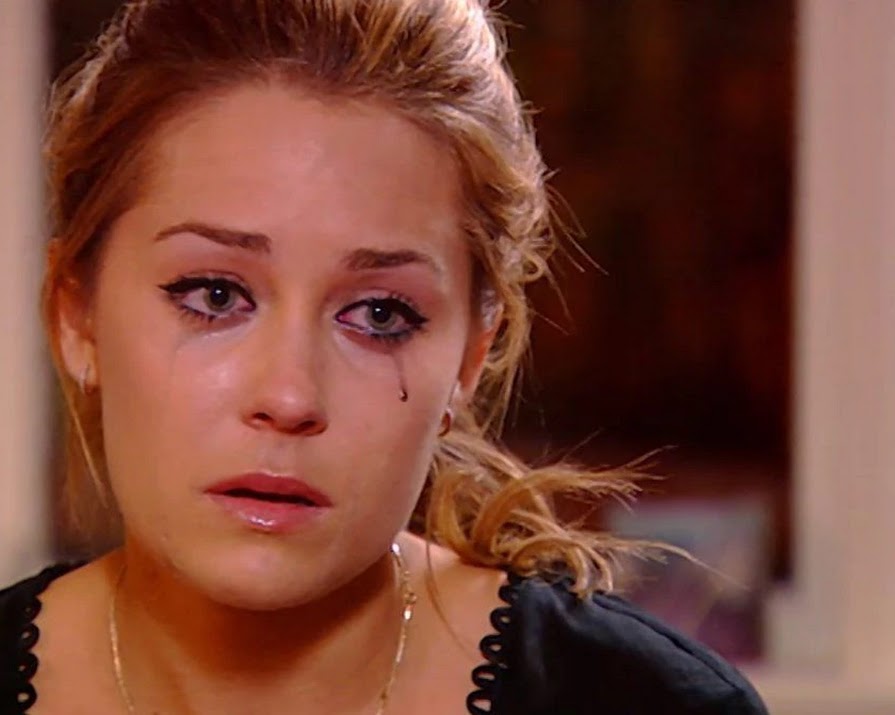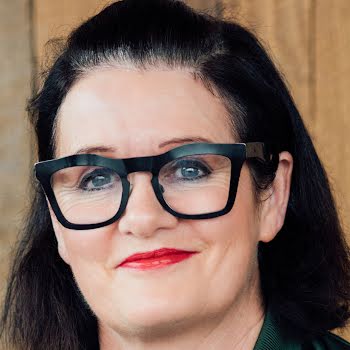
Forgiveness in adult relationships can be difficult, but sometimes you have to do it – not for them but for you
By Niamh Ennis
29th Jun 2022
29th Jun 2022
In complex adult relationships, sometimes you have to stop waiting for the heartfelt apology and just forgive. Not because they deserve it, but because you do.
To quote the iconic, mascara-teared streaked LC in The Hills, “The only thing there is to do it to forgive and forget. So I want to forgive you, and I want to forget you”.
In adult relationships, things aren’t as clean-cut as they were when we were children. There’s no teacher or parent around to force anyone to apologise for their actions. However, just because you mightn’t always get that exchange of feelings and experience, doesn’t mean you need to carry the weight of them around with you.
I recently decided to forgive someone. Not because they said they were sorry for the hurt they caused me, or because they finally acknowledged the deep pain their actions had on me, but because I was tired and I knew I deserved the peace.
Let’s get this out of the way early. Forgiveness does not mean condoning what someone said or did. That’s not a requirement. You don’t need to reach a point where you feel okay with what was done, or said to you, for you to be able to forgive. Why is it so important that you forgive? Well, it puts an end to allowing what happened affect how you are living your life right now and that’s the best reason I can think of.
Firstly, let’s look at what forgiveness is not and what it does not mean.
Forgiveness does not mean that you need to dismiss the truth of how you were hurt. You absolutely don’t need to dismiss it, in fact the more you can acknowledge it, the closer to forgiveness you will get. The more awareness you bring to just how hurt you were and why, the better chance you have of stopping it control your behaviours.
Forgiveness is about letting go, yes, but it’s not about letting anyone off the hook, unless you count yourself in there. When something happens and you’re hurt, disappointed or let down you will experience a myriad of emotions. Anything, or everything, from rage to anger, betrayal to shock, pain to sadness. These feelings interchange with each other, repeatedly.
What can happen next is that you lose sense of all perspective and you simply shut down. You become closed and in some extreme cases you become bitter. This disconnects you from all future hope of moving on from what happened. You fool yourself into thinking that the best thing you can do for yourself is to put all the necessary barriers in place and that this will rescue you from the potential of feeling vulnerable and stop you from ever getting hurt again. (Spoiler: it doesn’t!)
Understand
By trying to understand what happened, why it happened, what part did you play or what part should you have played, but didn’t; by getting yourself to that next level of understanding, you are beginning the process of releasing the hold it has on you. Anger, hurt and disappointment control you – forgiveness releases you.
Reliving it – The Scary Piece
I know that this is the bit that puts people off. The thoughts of having to go back to that place and to feel how you felt when it happened, is never appealing. You really don’t want to have to forensically explore the details, you just want to forget it happened and feel better again. But that’s just the point; understanding it, observing what happened, and bringing your humanity to it, is enough to help you to start feeling better. Sometimes that’s all you need to do. We have to confront what is taking up so much of our head space. To try and ignore it is in fact giving it permission to root down inside of us.
If you had a difficult relationship, for example, with a parent or caregiver, growing up then attempting to view them as humans, rather than just as parents, can often help you see them in a different way. Asking yourself questions such as ‘did they do their best?’ or ‘what do I believe were their true intentions?’ may alter your level of compassion. Of course, this won’t mean you have to forgive what they may have done, or not done, but it might provide you with further insight. This understanding is what will ultimately open the door for you to heal.
Start by forgiving yourself
Forgiveness is often defined as a deliberate and conscious decision to let go of those dark feelings of anger, hurt, resentment and sometimes revenge we hold towards someone who we believe has wronged us. However, while we may be quite generous in our ability to forgive others, or at least in our desire to want to, forgiving ourselves usually proves the most difficult part of the process.
The healing process needs you to be honest about how you are feeling. When someone wrongs us or hurts you, you can sometimes feel you are expected to react in a certain way. The reality might be, that inside, you are hurting and in quite a lot of pain.
You need to feel free to express the pain you are in. Not doing so just intensifies the hurt even more and ultimately causes more damage. Be honest always with what you are feeling. If you are hurt, say it, if you feel let down, admit it.
How to forgive and move on
Forgiveness is giving up the dream that “what would have, could have, should have happened, in fact did not happen”. And we didn’t like what it left us with. It’s to do with accepting the truth of what did happen, and moving forward.
Forgiveness happens like this…
-
- Accept what has happened.
- Accept when it happened.
- Forgive others for their part.
- Forgive yourself for yours. Accept the now, the present and lean into it.
Relinquish the hope you are carrying that the past could have been anything other than what it actually was. You can’t change it and whatever happened at that time has brought you here and made you, you.
Releasing Exercise
If someone hurt you that is no longer around and you are left with a lot of unresolved issues and no opportunity to speak your mind why not write to them? In your letter express exactly how you are feeling. Say everything you’ve wanted to say for so long but never had the chance. Write until you’ve nothing left to write. Then go outside in the nighttime and burn that letter. The energy you carried with you have now gone up in flames and you will feel lighter. This a very simple but extremely powerful way of letting go of any buried thoughts.
Let me leave you with these questions:
- Where do you need forgiveness in your own life right now?
- What anger and resentments are you holding onto that in turn are holding you back?
- Who do you need to forgive so that you can feel free?
I invite you to have the courage to let go of the disappointment and the hurts. Replace them with a sense of understanding and releasing. It’s not easy but it feels great when you do it. And trust me you deserve the peace. We all do.
Forgiveness, whether of yourself or another, is about releasing yourself from a series of energetic hooks that link you to a certain person or past event. Richard Rudd.
Niamh Ennis is Ireland’s leading Empowerment and Transformation Coach, Founder of The RESET for Change 3 Month 1:1 Private Coaching Programme and host of The TOUGH LOVE ENERGY™ Podcast. She’s known for her practical solutions to life’s challenges and her ability to tell you not what you want to hear but always what you need. For more www.niamhennis.com or find her on Instagram @1niamhennis






















